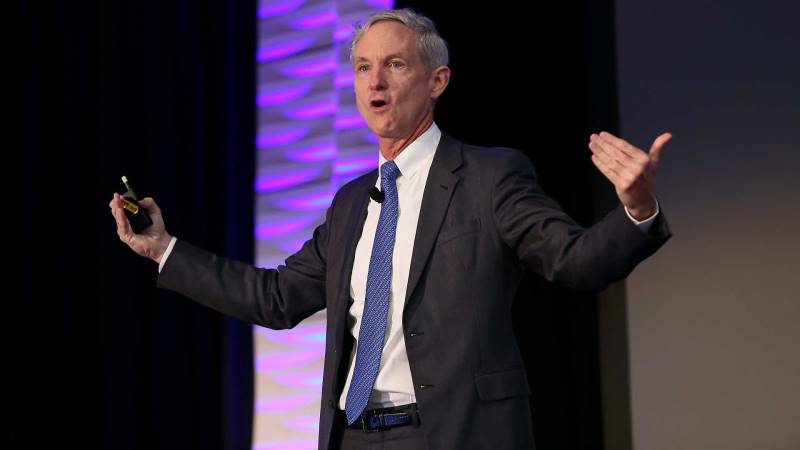
Due to the speed and sophistication of modern hackers along with increasing demands on government networks, traditional methods of cyber defense aren’t enough to protect agency data, according to Akamai CEO Tom Leighton.
“The traditional defenses that you would employ in data centers simply can’t keep up,” said Leighton, explaining that modern attacks can work at terabits of data a second, a speed that will soon become just the tip of the iceberg.
Leighton told the audience at the Akamai Government Forum on Tuesday that because the “edges” of the Internet, such as computers and phones, have approximately 70 times more capacity than the data centers and service providers at the core of the Internet, hackers can exploit that edge capacity to overwhelm and shut down major core systems. This is the basis for why so many distributed denial of service attacks are so effective.
“There is a lot more capacity at the edge than there is at the core,” said Leighton. “And so it becomes relatively easy to overwhelm the core with attacks on the edge. And of course, as bad as we think a terabit or two of attack capacity is today, that’s tiny as you bring all these devices online without security or effective security and they get taken over.”
‘Cyber is the New Black,’ Says State Department’s Coordinator for Cyber Issues
Leighton added that even the attack power of today can be enough to take out the Internet access of an entire country.
“Even already as we get to two terabits a second, that’s enough to isolate many countries on some continents from the rest of the Internet. As we get attacks at 100 terabits a second, which is going to happen, that’s enough to isolate every country from every other country.”
The normal traffic that government agencies deal with from their employees and partners already is slowing down networks. Providing access to the Internet itself, corporate data centers, remote access for telework, and other necessary capabilities puts a lot of demand on current capacity.
“This is only going to increase and get worse,” said Leighton, adding that a recent OPM report found that about 45 percent of employees are eligible for telework, which would add strain to remote access capabilities.
The public is also demanding a lot of government networks, as an Accenture study found that 85 percent of U.S. citizens expect government sites and apps to be just as good as the ones they use in the commercial world.
“Digital government is entering a new area,” Leighton said, “and very soon, if not already, most citizens are going to be accessing public services primarily through mobile devices, and they expect the service to be just as good or better with LAN devices. And they expect it to be as good as their consumer apps.”
